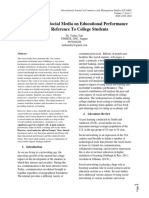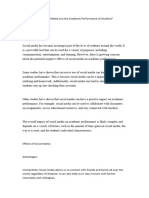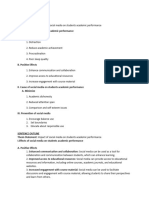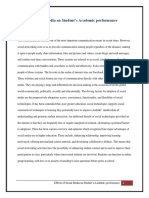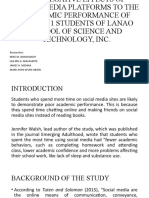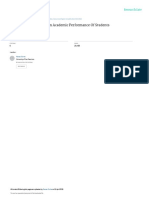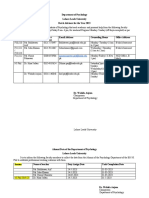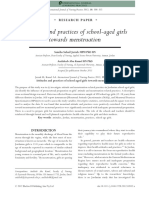0% found this document useful (0 votes)
18 views6 pagesChapter 1
The document discusses the dual impact of social media on the academic performance of senior high school students, highlighting both its potential benefits for learning and networking, as well as the distractions and negative effects it can cause. It emphasizes the need for students to balance their social media use with academic responsibilities, as excessive engagement can lead to decreased focus, mental health issues, and disrupted sleep patterns. The document calls for a deeper understanding of this complex relationship and suggests strategies for educators and students to mitigate negative impacts while maximizing benefits.
Uploaded by
Christian Sicop MaputiCopyright
© © All Rights Reserved
We take content rights seriously. If you suspect this is your content, claim it here.
Available Formats
Download as DOCX, PDF, TXT or read online on Scribd
0% found this document useful (0 votes)
18 views6 pagesChapter 1
The document discusses the dual impact of social media on the academic performance of senior high school students, highlighting both its potential benefits for learning and networking, as well as the distractions and negative effects it can cause. It emphasizes the need for students to balance their social media use with academic responsibilities, as excessive engagement can lead to decreased focus, mental health issues, and disrupted sleep patterns. The document calls for a deeper understanding of this complex relationship and suggests strategies for educators and students to mitigate negative impacts while maximizing benefits.
Uploaded by
Christian Sicop MaputiCopyright
© © All Rights Reserved
We take content rights seriously. If you suspect this is your content, claim it here.
Available Formats
Download as DOCX, PDF, TXT or read online on Scribd
/ 6

































